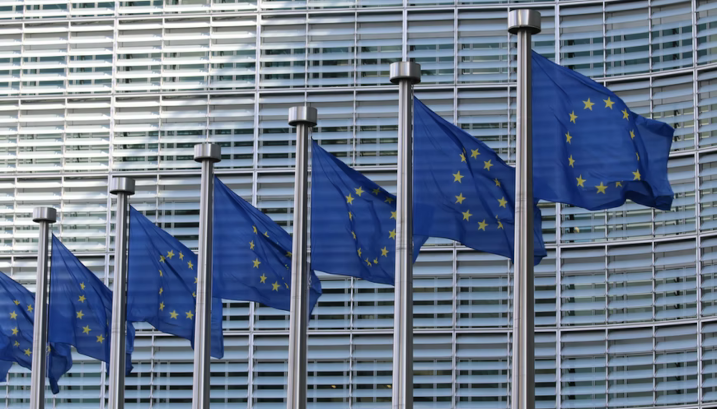 POLICY
POLICY
 POLICY
POLICY
 POLICY
POLICY
The European Commission, the European Union’s executive branch, today proposed new legislation that would require all smartphone makers to add USB-C charging ports to their handsets.
The requirement would also apply to other types of devices, namely tablets, cameras, headphones, portable speakers and handheld video game consoles.
But the proposed legislation is particularly significant for the smartphone industry. Apple Inc.’s iPhones use Lightning charging port technology instead of USB-C, which means that the company would be required to change the hardware design of its future smartphones if the proposed legislation becomes law.
The legislation would have a more limited impact on Android handset makers, many of which have already adopted USB-C.
“European consumers were frustrated long enough about incompatible chargers piling up in their drawers,” European Commission Executive Vice President Margrethe Vestager said in a statement. “We gave industry plenty of time to come up with their own solutions, now time is ripe for legislative action for a common charger. This is an important win for our consumers and environment and in line with our green and digital ambitions.”
In a statement responding to the news today, Apple said that “we remain concerned that strict regulation mandating just one type of connector stifles innovation rather than encouraging it, which in turn will harm consumers in Europe and around the world.”
The European Commission’s proposal consists of four main points. The first two would establish guidelines for how device makers should implement charging in their devices. The other two proposed rules, meanwhile, focus on improving the buying experience for consumers.
The key element of the proposed legislation is the first of the four points, which seeks to establish USB-C as a “harmonised charging port for electronic devices.” The objective, the European Commission stated, is to “allow consumers to charge their devices with the same USB-C charger, regardless of the device brand.” Under the second proposed rule in the legislation, device makers would also have to ensure that charging speed is the same regardless of the charger used.
On the sales side, manufacturers would be required to give customers the option to buy a new electronic device without purchasing a new charger as well. Officials believe that the move would help reduce the number of unused charges in consumers’ homes. It’s estimated that lowering the production and disposal of new chargers could cut the amount of electronic waste in the EU by a thousand tons every year.
Lastly, the proposal specifies that device makers should provide information about their products’ charging features. Manufacturers would have to share information on whether a device supports fast charging and how much power it consumes.
The goal is to make it easier for consumers to determine whether an existing charger they own would work with a device they are considering buying. In scenarios where users don’t already own a compatible charger, the product information that device makers would be required to share could help them find a suitable product. The European Commission estimates that, combined with the other proposed measures, the requirement to share more detailed charging information could save consumers 250 million euros a year.
The proposed legislation will have to be adopted by the European Parliament and European Council to become law. Afterwards, device makers would have two years to add USB-C support to their products.
Support our mission to keep content open and free by engaging with theCUBE community. Join theCUBE’s Alumni Trust Network, where technology leaders connect, share intelligence and create opportunities.
Founded by tech visionaries John Furrier and Dave Vellante, SiliconANGLE Media has built a dynamic ecosystem of industry-leading digital media brands that reach 15+ million elite tech professionals. Our new proprietary theCUBE AI Video Cloud is breaking ground in audience interaction, leveraging theCUBEai.com neural network to help technology companies make data-driven decisions and stay at the forefront of industry conversations.